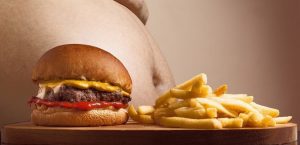The process of losing weight is often hampered by the numerous pieces of advice we read on the Internet or hear from friends. And the more this advice, the easier it is to get confused, because they all contradict each other.
1. Eating fats leads to weight gain.
It is true that fats contain twice as many calories per gram as proteins or carbohydrates, but because of this they can provide a feeling of fullness for twice as long. It’s important to remember that fats come in many forms: French fries are indeed a big threat to your body, but avocados, salmon and olive oil are important parts of a healthy diet. Of course, if you eat more fats than your daily norm, you will gain weight, but this applies equally to all foods.

2. The key is to count calories.
A calorie deficit really is the foundation of weight loss, but what foods you get those calories from also plays a big role. You can eat a bar of milk chocolate and get 650 kcal, or you can eat a healthy lunch with a balance of fats, proteins and carbs. Although the calories are about the same, they will affect your body very differently.
3. Carbohydrates are the enemy of a slim body.
Giving up carbs is one of the biggest mistakes we make in the quest to lose weight. Like fats, carbohydrates are necessary for the normal functioning of the body, and their lack has serious health consequences. Carbohydrates can be different, sugar and white bread can really be given up completely (here already a question of willpower), and wholemeal products containing slow carbohydrates are able to provide the body with everything it needs and to quench the feeling of hunger for a long time.
4. Eating at night leads to inevitable weight gain.
The main questions you should ask yourself when it comes to losing weight, is what and in what quantities you eat. If the answer to them you are completely satisfied, then the question “when?” disappears by itself. You should not eat 2-3 hours before bedtime, solely because the food does not have time to digest, it will cause discomfort in the intestines and restless sleep. A proper balanced dinner no later than 3 hours before bedtime is the key to good health. And it won’t hurt your figure.
5. Any errors in diet can be “worked off” in the gym.
No matter how regrettable it is, but an extra 30, 40 or even 60 minutes on a treadmill will not get rid of the consequences of a fast-food dinner. Firstly, because it is much easier to eat an extra thousand kilocalories than to burn them later. Secondly, the lack of necessary nutrients in junk food will still affect the body, though not in the form of fat mass. In addition, a grueling workout will not only not get rid of the consequences of eating disorders, but can also cause health problems if the body is too exhausted.
6. Dietary supplements help to lose weight
A dietary supplement is a nutritional supplement (calcium, magnesium, vitamin B, omega-3, etc.). Nutritional supplements should be prescribed by a doctor if you have a deficiency of one or another substance after taking tests. It is not known how micronutrients can help you lose weight, but taking them without consulting your doctor can be dangerous to your health.
7. Breakfast is a must for weight loss
Contrary to popular belief, which everyone seems to broadcast, breakfast does not automatically lead to weight loss. Breakfast will energize you in the morning and make you less likely to overeat, but whether or not you lose weight still depends on the number of calories and the balance of nutrients you consume throughout the day.
8. Giving up gluten will help you lose weight
Gluten is a natural protein found in wheat and some other grains. A gluten-free diet is only necessary for people with celiac disease (gluten intolerance) and may even cause weight gain. Often the gluten-free products you find in diet food departments contain added sugar and trans fats, making them much more harmful to your figure than their natural counterparts.
9. Cardio exercise is the only way to burn fat.
If you hate the treadmill, you don’t have to spend hours on it. Strength training is often more effective for weight loss than cardio. If your goal is to lose weight and you are in a calorie deficit, there is no need to worry about actively building muscle mass. Strength training will only strengthen your muscles and serve as a great alternative to cardio.
10. Good food is bad food
The idea that working out can’t be enjoyable is firmly ingrained in the mass consciousness. Exercise is always a drag, healthy food is always bad, and you have to go through a lot of deprivation to look good. This is actually a big misconception. Now you can find a huge number of recipes for delicious low-calorie meals that will turn weight loss into a real holiday. The same applies to exercise, the main thing is to find an activity to your liking.
